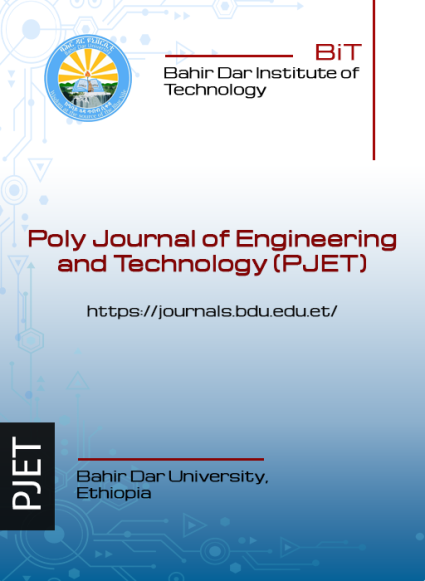Evaluation of hermetic storage methods and their storage time against weight loss, mold growth, physicochemical properties and germination capacity of maize
Abstract
It is not widely known how maize grain is stored in Ethiopia using hermetic storage methods. The purpose of the current study was, to evaluate the impact of different hermetic storage methods on storability of maize grain. The levels of storage methods were Metal silos, Purdue Improved Grain Storage bags, Super Grain Pro bags, plastic drums, and polypropylene bags as controls with 2, 4, and 6 months of storage. ANOVA was determined by factorial using SAS software. The experimental results showed that the storage methods had no significant (p<0.05) effect on fat, protein, and mold growth of stored maize. However, the storage methods had a significant effect (p<0.05) on the moisture content, number of live and dead insects, weight loss, bulk density, and germination test of maize grain. Among the storage method, Super grain bag and Purdue improvement crop storage bag had significantly higher values of germination test and bulk density when compared to the polypropylene bag and metal bin at different storage time. Finally, from this study it was concluded that hermetic storage methods such as Purdue improvement crop storage, Super grain bag, and Metal silo were important to preserve maize grain by lowering insect pest infestation and mold growth.
Copyright (c) 2024 Poly Journal of Engineering and Technology (PJET)

This work is licensed under a Creative Commons Attribution-ShareAlike 4.0 International License.


